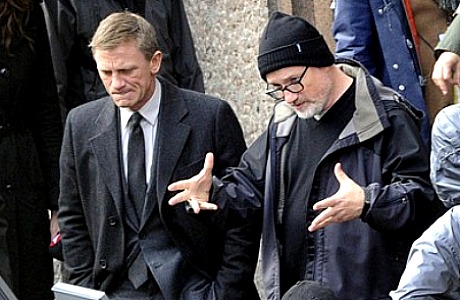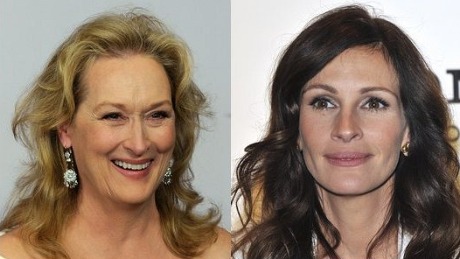Hey, Guillermo — this 1991 Alka Seltzer commercial has been sitting on YouTube since last May 3rd. What’s the history of it? How did you get the job? How many takes? Did you shoot any others? I’m kind of wondering why nobody passed it around or posted it before Anne Thompson put it up a few hours ago.
Day: January 2, 2011
It's Over
It feels so great that the holiday is only a few hours from being over and that regular life will begin again tomorrow morning. Well, within a couple of days. It’ll take that long for people to get their engines going again (it always does), but the great shutdown of 2010 is no more.
Period Piece
In an interview with Collider‘s Steve Weintraub, The Social Network/The Girl With The Dragon Tattoo director David Fincher has said that the latter film, due in December 2011, will be strictly set in the year and the technological realm of 2003, or “pre-iPhone.” That’s because author Stieg Larsson was “probably thinking” of a 2003 world when he wrote the “Girl” books, Fincher says.

The Girl With The Dragon Tattoo star Daniel Craig, director David Fincher during filming in Sweden.
“What year does [the story] take place in?,” Fincher says. “Well, Larson’s books are delivered in 2004, so he’s probably thinking in terms of 2003, it’s not published until 2005, 2007 is the iPhone, so all those apps that would be available to the iPhone are probably something that Lisbeth Salander would have access to ’cause she’s a bit of a Mac junkie. So you kind of go, ‘Well where do we draw the line?’ So we just said, look everything has to be pre-iPhone technology, because otherwise they would be sitting there going ‘Well, we just go over here.’ They would have a compass; they would be able to tell what the weather was like.
“So there’s all that stuff, you just have to make a decision [that’s] fairly arbitrary, basically everything in the movie is pre-iPhone.”
Once again, Fincher is sharing his basic Holy Grail faith in the Larsson books. They’re sacrosanct and part of history and can’t be changed in the slightest detail — they have to happen in Sweden despite the rank absurdity of all the characters speaking in English, and the story has to happen within the exact same culture that was influencing Larsson when he was writing the books. I respect Fincher’s aesthetic integrity, but going strictly period just feels weird to me. Think of all the changes that have to be enforced in terms of cars and flatscreens and God-knows-whatever-else. How could the story be affected that heavily by the use of Google Maps and having a good idea what the weather will be like a couple of days hence?

The Girl With The Dragon Tattoo costars Daniel Craig, Rooney Mara. Wait –have Mara’s eyebrows been shaved?
Suggestion/Offer
Wells to Manhattan-based, Sundance-bound publicists: I don’t have to tell you that the next two weeks offer excellent opportunities to pre-screen whatever films you have playing at Sundance 2011. Producers usually don’t want their films seen on this basis, I realize, but the facts are that (a) Sundance journalists are always trying to get into the same 25 or 30 buzz films and (b) most of the others always seem to be scrambling for attention, some more than others. For 65% of the allegedly hot films up there it’s “move it or lose it.”
I for one would love to be able to see as many Sundance ’11 films in advance as possible, and I’m sure other columnists feel the same way.
Those producers of Sundance or Slamdance films unwilling to screen in advance could at least consider sending along embed codes of trailers or short-peek reels. I’d be happy to run whatever I’m sent between now and the start of the festival, or over the next two and a half weeks.
Araki World
Gregg Araki‘s films (including his latest) are never about finding employment or learning a craft or driving a cab or creating art or taking care of a child or nursing a sick dog. They’re always about attractive young urbans with cool haircuts and slim, well-toned bodies doing lots and lots of boning — straight, gay, polymorphously whathaveyou.
In other words, things haven’t changed that much since The Doom Generation (’95). Indeed, Kaboom (which will play at Sundance later this month) “picks up where Araki’s ‘Teenage Apocalypse Trilogy’ of the 1990s left off,” says the Sundance summary.
For what it’s worth, Kaboom is about “an ambisexual 18-year-old college freshman” — an Araki constant — “who stumbles upon a monstrous conspiracy in a seemingly idyllic Southern California seaside town.” The Sundance notes call it “unrestrained and completely over the top [with] scatological and absurd Valley-inflected dialogue, elements of campy gore and Araki’s troupe of arrestingly sexy guys and girls.”
Blue Turns to Gray
I’m trying to cobble together an “abandonment theory” about movie-watching. It’s basically about a syndrome in which you enjoy and admire the hell out of a film when it first comes out but then you start to go cold on it once the “wrong” people (i.e., unwashed megaplex hordes) start embracing it big-time. This hasn’t happened with any regularity, and in fact has occured hardly at all. But it has happened once in a blue moon.
The most recent incident didn’t concern a film but a piece of music — Peter Tchaikovsky‘s “Piano Concerto No. 1.” Black Swan inspired me to buy a few Tchaikovsky tracks on iTunes a couple of months ago, and that was fine. But on 12.26 I read Frank Rich‘s N.Y. Times piece about “Disneyland Dream,” a short film about a 1956 trip to Disneyland made by middle-class family man Robbin Barstow. This led me to watch “Disneyland Dream,” which to my shock and regret begins with “Piano Concerto No. 1.”
I know this makes me sound like an aesthetic reactionary, but the Barstow association killed my Tchaikovsky feelings. Suddenly the revered Russian wasn’t a Darren Aronofsky-endorsed composer but a favorite of some middle-class Connecticut dad who could have been the father of Dennis the Menace, and the instant I heard Tchaikovsky’s French horns at the beginning of Barstow’s film, I bailed. I said to myself, “Okay, that’s it…I can’t be on the same boat as Barstow…Tchaikovsky may drift back into my head down the road but right now he’s over….sorry.”
A kind of reverse abandonment situation has happened with True Grit. I didn’t emotionally care for the Coen Brothers film when I first saw it in a screening room, but I might have eased up if it had failed commercially. I might have watched it again and decided (who knows?) that it’s slightly more affecting or whatever. But now that it’s become a huge hit I can’t possibly watch it again with a more open attitude. Now I’m really against it. I can’t open myself up to a chilly western that the wrong people (i.e., ticket buyers) have made into a success and a possible awards contender. Game over. I was right the first time and that’s that.
I loved E.T., the Extra-Terrestrial when I saw it at an early screenings in ’82, and came to despise it once it become a megahit. But I didn’t abandon Titanic when it became the biggest hits of all time. The last 20 to 25 minutes of that film are so affecting that I’m still on-board with it. What others? Not many, I’m sure. My usual tendency is to hang tough when I like something, come hell or high water.
Streep's Coming Blitzkreig
In yesterday’s “Ladykillers” piece I bypassed Meryl Streep/Julia Roberts as potential Best Actress contenders in John Wells‘ film version of August: Osage County. That’s due to the strong likelihood of this Harvey Weinstein/Jean Doumanian co-production being a 2012 release. But what would happen if the Osage County team got the lead out and opened their film 11 months hence?

Meryl Streep vs. Julia Roberts in August: Osage County could become one of the greatest within-the-same-film female acting battles of all time.
I’ll tell you what happens: Streep wins the 2011 Best Actress Oscar in a walk. But the more likely finale is that she wins a year later, or when they hand out the 2012 Oscars in February 2013.
Osage County will reportedly begin filming next summer (presumably between May and August), or a month or two after Streep finishes portraying conservative British prime minister Margaret Thatcher in Phyllida Lloyd‘s The Iron Lady.
An extremely rushed post-production schedule would be required for August: Osage County to be released by next December, and urgency has never been an issue in preparing the screen version of Tracy Letts‘ Pulitzer Prize and Tony Award-winning play to begin with. If anything, the watchword has been “drag-ass” — the original Steppenwolf production opened three and half years ago and the film adaptation was decided upon in ’08. Letts, I’m told, has taken his sweet time writing the screenplay version, presumably due to pressures to translate his 210-minute play down to a more butt-friendly 150 or 160 minutes.
One further assumes that Streep wouldn’t want to be competing against herself with two Best Actress performances — Margaret Thatcher (which you know she’ll kill with, even if the film isn’t absolutely top-grade) vs. Violet Weston. And I can’t imagine that the producers of Iron Lady and August: Osage County would want an awards-season showdown.
But perhaps Meryl wouldn’t mind. If both films were to open this year there would be almost no choice but to hand her a second Best Actress Oscar (the first won in ’84 for Sophie’s Choice) and her third overall. The double-barrelled blitzkreig would be all but unstoppable.

(l. to r.) Amy Morton, Rondi Reed and Deanna Dunagan in the original B’way production of Tracy Letts’ August: Osage County.
The more likely scenario is that Streep gets nominated for The Iron Lady but doesn’t win, but returns with guns blazing in August: Osage County. Given the snail’s pace so far, I’m expecting to see Wells’ film open sometime between September and December of 2012. If you know Violet Weston you know Streep will be nominated, trust me. And so will Roberts, I’m guessing, due to her having one hell of an angry, intestinal-fortitude, emotional-river role as Streep’s daughter, Barbara Fordham. But Streep wins, in part due to a 2011 overlap sentiment with voters thinking “well, she was so great as Thatcher and now she’s excellent again,” etc.
So Streep either picks up her Oscar in February 2012 (if both films open this year) or, more likely, February 2013. But one way or the other, she’s in. The perennial “Meryl again?” whine won’t make a dent.
The only possibly troublesome issue facing The Iron Lady and August: Osage County is whether their directors are up to snuff. Never forget that Lloyd, a theatre and opera director, made Mamma Mia! into a hugely successful but agonizingly awful film to sit through. And the fact is that Wells did such a fine job of conveying unemployment angst in Company Men that he made me feel like I was stuck in a minimum-security prison.
Iron Lady costar Jim Broadbent told Vulture‘s Kyle Buchanan in a 12.29.10 posting that the film will start shooting in London at the end of this month.
A further concern (or suspicion, if you will) about The Iron Lady is a decision by Lloyd and producer Damian Jones (The History Boys) to have female screenwriter Abi Morgan rewrite Brian Fillis’s screenplay, which dates back to ’07. I haven’t the first clue about the quality of anyone’s screenplay or writing, but hiring a screenwriter who’s described herself as an example of “Thatcher youth” suggests that Lloyd and Jones are looking to soften or at least emotionalize the portrayal.
Morgan (who also wrote the screenplay for Steve McQueen‘s forthcoming Shame) told a Scottish interviewer earlier this year that “I need to be in charge and that comes from when I was growing up and money was always an issue…I didn’t want to feel the fear of poverty again and I suppose in that way I qualify as Thatcher Youth.”
